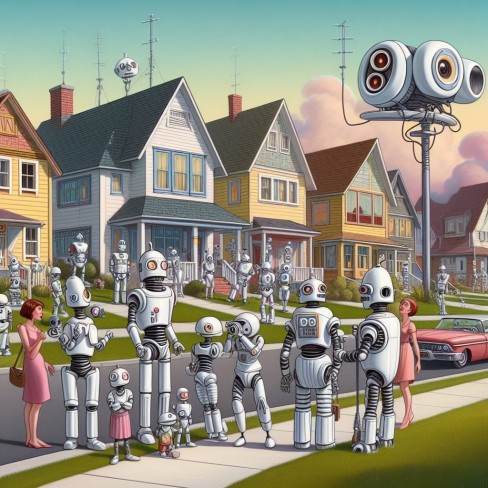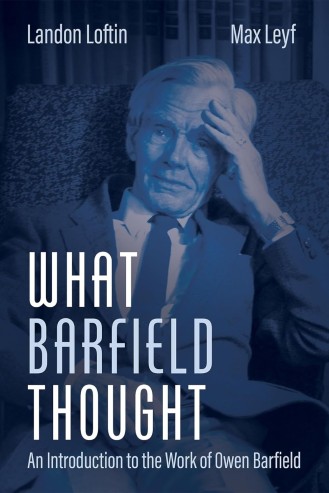In praise of Ray Bradbury

Ray Bradbury’s The Martian Chronicles are thoughtful meditations on the nature of human existence. They are easy to read and fun to use in an ethics class for that reason. One of the stories is named after the Sara Teasdale poem, There Will Come Soft Rains. Apparently written in response to the German ground offensive of WWI in 1918, and during the flu pandemic, the poem states that nature, in the form of birds, frogs, and trees would not notice our absence. And “Spring itself,” barely so. The implication is that human beings lie outside nature, although “Spring” seems to have some dim sense that we exist. There is no mention of God, who might be presumed to miss us. Teasdale had apparently developed the nihilistic view that the universe cares not at all about our actions or existence from reading Charles Darwin, starting in 1913. This is the same erroneous notion that Richard Dawkins likes to promote. It is a view that pushes human beings outside the universe, which is incorrect since parents are in fact part of the universe, and they generally love and care for their children. Human babies are so dependent on mothers that they would all die without this beneficent parental orientation. The problem is not with human beings, the universe, or nature, but with atheism which leads to moral nihilism if followed consistently, as discussed below. It is not only human beings who lose their intrinsic value and significance under atheism, but nature, too. Crude materialism reduces “nature” to mechanistic forces blindly ramming into things in deterministic fashion. Without a telos, in the manner of Aristotle’s Prime Mover, attracting creatures to ascend from their potential form to their actual form via moral aspiration, drawn to the perfection that God represents, things happen at random, teleologically speaking, with no underlying meaning.
Unlike Darwin, modern and up-to-date evolutionary theory, as seen in Perry Marshall’s Evolution 2.0, sees living cells and organisms engaging in horizontal gene transfer, transposition, epigenetics, symbiogenesis and hybridization. The levels of intelligence and teleological (purposeful) behavior is truly astounding.
It is human poetry that teaches and reminds modern man to see “nature” as something beautiful and worth preserving. Primitive man did it instinctively, but we moderns frequently have to work at recovering and maintaining such a vision. It is partly a matter of how much time we spend indoors. Put in the right context; by the sea, in a forest, hiking a mountain, we can fairly easily appreciate natural beauty once again. Continue reading →



 Owen Barfield was a member of the Inklings, the famous literary group that included J. R. R. Tolkien and C. S. Lewis. Barfield wrote the first “fey” novel that influenced the two other writers to pen their own works of fantasy. He also was instrumental in Lewis’ conversion to Christianity after many years of the “Great Debate” engaged in on long walks. Lewis’ Surprised by Joy mentions him by name and many of the speaking engagements Barfield had in the U.S. were from Lewis fans, thanks to Lewis’ endorsements. He had more of a popular audience than an academic one, just as was the case for Lewis’ Christian apologetics.
Owen Barfield was a member of the Inklings, the famous literary group that included J. R. R. Tolkien and C. S. Lewis. Barfield wrote the first “fey” novel that influenced the two other writers to pen their own works of fantasy. He also was instrumental in Lewis’ conversion to Christianity after many years of the “Great Debate” engaged in on long walks. Lewis’ Surprised by Joy mentions him by name and many of the speaking engagements Barfield had in the U.S. were from Lewis fans, thanks to Lewis’ endorsements. He had more of a popular audience than an academic one, just as was the case for Lewis’ Christian apologetics.
 Samuel T. Francis claimed, adding to James Burnham’s The Managerial Revolution, that there are not only managers of government and managers of industry, as Burnham claimed, but managers of public opinion as well. These managers exist in “advertising, publishing, journalism, films, broadcasting, entertainment, religion, education, and institutions for research and development,” NGOs, etc. We have seen from
Samuel T. Francis claimed, adding to James Burnham’s The Managerial Revolution, that there are not only managers of government and managers of industry, as Burnham claimed, but managers of public opinion as well. These managers exist in “advertising, publishing, journalism, films, broadcasting, entertainment, religion, education, and institutions for research and development,” NGOs, etc. We have seen from 
